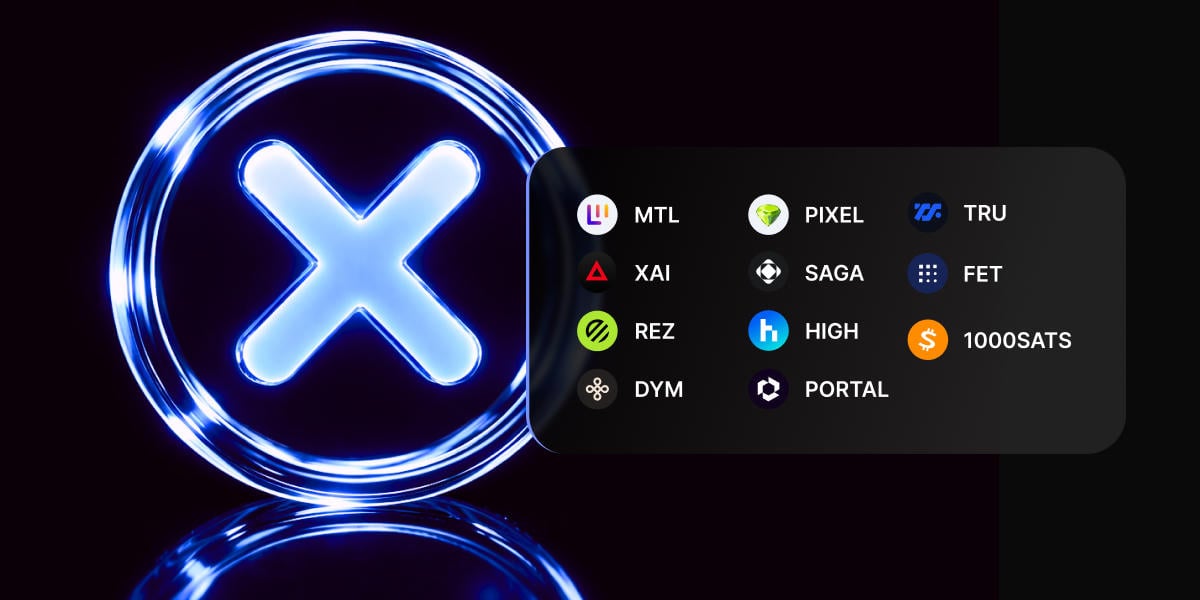Anyone stepping into forex trading will likely run into the term “regulated broker” early on. It might sound a bit mysterious at first, as there’s a lot packed into those two words. In short, regulation is a key pillar of safe and reliable trading.
But well… That simple description doesn’t tell the whole story, especially since not every broker is regulated. So what does this word actually mean, and why does it matter? That’s exactly what we’ll explore in this article.
Understanding broker regulation
Trading knowledge is nice to have, but understanding broker regulation is a must. Regulation ensures transparency and adds a layer of security to the whole experience. Before placing trust in any platform, it is important to assess whether it offers a safe space for trading. Let’s break it down a little, shall we?
What does “regulated” mean in trading and finance?
“Regulated” is a key term to look for when choosing a trading platform. It means the broker operates under the supervision of a recognised financial authority and is required to follow strict rules and standards.
This includes obtaining a proper licence, meeting capital requirements, maintaining transparency, and undergoing regular audits.
Who regulates brokers and why it matters
Financial regulators exist in nearly every region. Examples? The UK’s Financial Conduct Authority (FCA), the Australian Securities and Investments Commission (ASIC), the South African Financial Sector Conduct Authority (FSCA), and many, many more. We’ll take a closer look at some of them later in the article.
At this point it’s worth noting that each regulatory body may have its own set of requirements and standards. What counts as sufficient oversight in one country might look quite different in another. That’s why it’s so important to verify a broker’s regulatory status and understand what it truly means in practice.
How regulation builds market trust
Regulation makes traders more confident, assuring them that they can expect fair pricing, secure handling of their funds, and legal accountability if something goes wrong. Simply put, regulation is the backbone of a safe and trustworthy trading environment.
Regulated vs. unregulated brokers
Let’s be real, not many people get excited about reading up on regulations or figuring out what it actually means for a broker to be regulated.
Still, it’s a big deal, especially when real money is on the line. A broker’s regulatory status can be the deciding factor between a smooth trading experience and a complete disaster.
Key differences in compliance and oversight
Regulated brokers operate under the supervision of a recognised regulatory authority. That means they’re required to follow strict rules, undergo regular audits, and be fully transparent about how they operate. Those things aren’t just “nice-to-have”. They are required.
Unregulated brokers? That’s a different story. With no regulatory oversight, there’s no one making sure they’re playing by the rules, and no assurance that client funds are being handled responsibly. It’s more of a wild west scenario.
Investor protection and safety measures
Regulated forex brokers have to keep clients money in segregated accounts, which are completely separated from their own funds. In simple terms, even if the broker runs into financial trouble, investors funds remain protected.
On top of that, many regulatory authorities require forex brokers to be part of compensation schemes. These schemes make it possible to return funds to clients if things go downhill. It’s all about adding extra layers of safety and, honestly, a peace of mind.
Common risks with unregulated brokers
Now it’s time to talk about the real risks of investing with an unregulated broker. Freezing withdrawals, manipulating trading conditions, or even vanishing with client funds altogether. These aren’t just hypothetical scenarios. They’ve all happened before. What’s more, they’re not rare exceptions.
For anyone serious about forex market trading, partnering with an unregulated brokers can quickly turn into a costly mistake.
How to verify a broker’s regulatory status
Doing a quick broker background check is one of the smartest steps a trader can take before opening a trading account. The good news? It’s easier than it sounds.
- Look for licence information on the broker’s website
A regulated broker will usually list its licence number and regulatory authority clearly. This information is usually (but not always) in the website footer or legal section.
- Visit the official regulator’s website
Go to their website and use the search tool to check if the broker is actually registered.
- Match the details
Make sure the company name, address, and licence number on the regulator’s site match what the broker claims. Any mismatch may mean one thing. It’s a red flag.
- Watch for warning signs
Some things are clear giveaways. Be cautious if the broker doesn’t list a licence number, shows a fake or unverifiable certificate, is registered in a vague offshore location, or makes it hard to find contact details or legal info, as mentioned above.
Global regulatory authorities to know
There’s no shortage of regulatory authorities out there. In the forex industry, it’s worth being familiar with the main ones, as they set the standards for how the industry operates.
Each of them has its own rules and takes a different approach to things like client fund protection, broker oversight, and even regional access through mechanisms like passporting. Here’s a quick overview of the key players.
South Africa – FSCA
Let’s start with South Africa’s FSCA. It focuses on fairness, transparency, and clean conduct. It doesn’t offer passporting, but its practical, no-nonsense approach is earning global respect.
UK – FCA
The FCA is one of the most trusted regulatory bodies globally. It demands high standards in areas like client fund segregation, regular audits, and solid investor protection. With that being said, it’s safe to say an FCA licence is a strong trust signal.
EU – CySEC
CySEC plays a major role in the EU, as passporting rights allow brokers to operate across the EEA. Once seen as a softer regulator, it’s stepped up in recent years, making it a well-respected and globally recognised regulatory body.
Australia – ASIC
ASIC doesn’t mess around. Known for its strict rules, it keeps brokers in line. Adding compensation in case of lost funds, makes it clear why ASIC-regulated brokers are seen as a safe, reliable choice.
Seychelles – FSA
The Seychelles FSA takes a lighter approach to regulation. It’s a popular choice for brokers seeking quick licensing, but it doesn’t provide the same level of investor protection as the bigger names.
What to expect from a regulated broker
Being licensed is one thing. Keeping up with the rules and meeting the highest standards? That’s another story. So, what should traders actually expect from a regulated broker? What’s considered standard and what counts as raising the bar for others?
Segregated funds and compensation mechanisms
Let’s start here. Client money is kept in separate accounts, away from the broker’s operational funds, so even if things go south, the funds stay protected.
Audited trading platforms and technical stability
Audits, audits, audits. Platform stability is key and that’s why regulated brokers get checked regularly. Some even might have official certifications to back it up.
Research tools and market analysis features
What makes trading better? Market insights, charts, calendars, and tools that help traders make smarter moves. Any broker aiming to stand out should bring all of that to the table.
Choosing the right regulated broker
The truth is, finding a regulated broker is just the start. A proper review of the chosen platform should go well beyond the licence. Forex traders need to see the full picture before opening an account or trusting a platform with their funds.
Regulation is not the only factor
Being licensed is great, but there’s a lot more to earning the title of a reputable broker. That includes offering lower fees, smooth UX, fast execution, solid support and sometimes even a demo account. It’s the full package that counts.
Why forex brokers are heavily scrutinized
Forex trading comes with higher risk, especially for retail traders. That’s why forex brokers face stricter rules than most institutions.
Ask before you register
So, what to do before opening a live account? The best move is to check the basics:
- Licence and regulatory authority
- Client fund safety
- Trading conditions
- Support channels
- Real reviews
A quick check can go a long way in avoiding scam brokers and finding the ones that actually deliver.
PrimeXBT as a regulated broker
To wrap things up, we can agree that choosing the right platform can be a bit of a challenge. No worries, though.
Here’s a quick look at PrimeXBT as an example of how a broker can align with regulatory standards and trader expectations.
Where is PrimeXBT regulated?
PrimeXBT operates through multiple licensed entities across different regions. It is regulated by the Financial Services Authority (FSA) in Seychelles and licensed as a Financial Services Provider (FSP) in South Africa. Just to name a few!
What’s more, it’s registered in Saint Lucia, although it’s important to note that registration doesn’t equal licensing.
What regulatory standards are followed?
PrimeXBT applies key regulatory practices across the board. Let’s summarise them:
- Segregated client funds
- Cold storage for crypto assets
- Routine compliance audits
- Compensation fund up to $20,000
Trade securely with PrimeXBT
Operating under established regulatory frameworks means greater safety and that’s something PrimeXBT delivers. At the end of the day, transparency and a secure trading environment matter the most, right?
For those who value that, PrimeXBT is a platform worth considering.
Final thoughts
It can’t be stressed enough that choosing the right platform to trade on is not just a technical detail. It’s one of the most important steps before starting any trading journey. It helps to avoid fraud and unnecessary risks.
The same goes for doing proper research before investing. Reading reviews, comparing services, and understanding what is being offered. That’s the process. After all, clients deserve clarity and everybody wants to make an informed decision, right?
Still, that’s not all. Trading goals vary from person to person. Some may start with a small deposit, others might focus on access to more currency pairs, or look for lower fees to maximise returns.
So it’s worth taking the time before diving into the forex market. The best advice would be to learn from other traders, ask the right questions, and choose a broker that genuinely reflects what it means to be a regulated entity.
The content provided here is for informational purposes only. It is not intended as personal investment advice and does not constitute a solicitation or invitation to engage in any financial transactions, investments, or related activities. Past performance is not a reliable indicator of future results.
The financial products offered by the Company are complex and come with a high risk of losing money rapidly due to leverage. These products may not be suitable for all investors. Before engaging, you should consider whether you understand how these leveraged products work and whether you can afford the high risk of losing your money.
The Company does not accept clients from the Restricted Jurisdictions as indicated in our website/ T&C. Some services or products may not be available in your jurisdiction.
The applicable legal entity and its respective products and services depend on the client’s country of residence and the entity with which the client has established a contractual relationship during registration.




